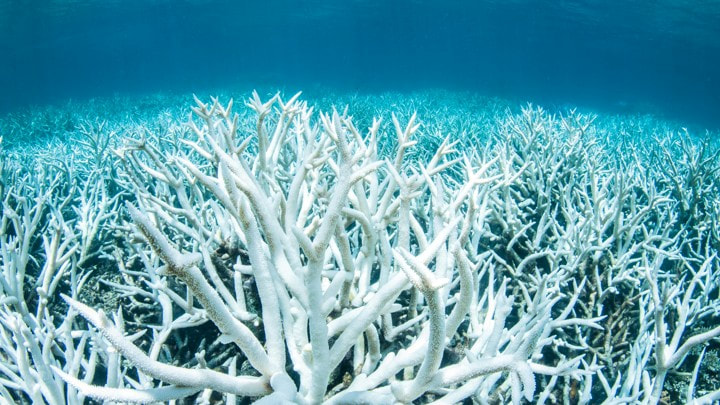|
By Ethan Thio '22 Edited by Ishaani Khatri '21 It is human nature to distill our problems to their most pertinent metrics and obvious consequences. We focus on the open wound and ignore the sore back, because doing so makes us feel as if we can make our problems more manageable. But when considering complex issues such as climate change, the instinct to simplify is costly. A Guardian article titled “Our Oceans Broke Heat Records in 2018 and The Consequences Are Catastrophic,” explains that rising air temperatures are the most commonly reported evidence in the media of global warming. [1] Simply put, rising surface air temperatures are a hallmark of modern climate change. However, simplifying climate change to rising air temperatures is problematic, not only because it ignores the a multitude of other consequences of climate change, but also because air temperatures are erratic. It is hard to develop a truly airtight argument around air temperatures, because while a general trend of warming air temperatures exists, each individual year can have a large degree of fluctuation. As such, it is important that we consider other consequences of climate change, and arguably none are more consistent or alarming than rising ocean temperatures.
A study in the Journal of Advances in Atmospheric Sciences explains that 2018 is the hottest year ever recorded in the oceans. [2] This record of warming is consistent, as ocean warming has accelerated since the 1990’s, with the top 5 warmest years on record being 2018, 2017, 2016, 2015, and 2014, in that order. Furthermore, not only is this trend easily observable, but it is widely distributed. The vast majority of oceans showed a marked increase in heat, all serving as undeniable evidence of global warming. As such, rising ocean temperatures stand as a strong, reliable marker of global warming, unlike rising air temperatures which can be fickle. Rising ocean temperatures are more than simply a signal of climate change, they directly contribute to some of the most damaging consequences of climate change. Warmer oceans contribute to rises in sea levels, as sea water expands when heated and sea ice melts as well. This can cause significant problems for coastal populations around the globe, with the potential to displace millions. These rising seas also threaten freshwater supplies, as rising seas cause seawater to encroach on freshwater. Furthermore, warmer oceans are linked to more dangerous storms. Warmer oceans can supply more moisture to storms, increasing the intensity of storms and heavy rains. This can cause massive flooding, destruction of property, and the loss of life. Furthermore, warmer oceans contribute to the death of corals and affect delicate marine ecosystems, placing already damaged sea life in further peril. Rising sea temperatures are an effective indicator of climate change, as they are reliably consistent in demonstrating increases year after year and are linked to devastating consequences. Warming seas will impact millions of people, alter already severe weather patterns, and wreak havoc on sea life. But ultimately, the real mistake would be to distill climate change to any single issue. Climate change is a multifaceted issue that is affecting the planet from almost every angle, and making the issue one-dimensional diminishes the severity of the problem at hand. [1] Cheng, L., Zhu, J., Abraham, J., Trenberth, K., Fasullo, J., Zhang, B., . . . Song, X. (2019). 2018 Continues Record Global Ocean Warming. Advances in Atmospheric Sciences, 36(3), 249-252. Retrieved March 27, 2019. [2] Abraham, J. (2019, January 16). Our oceans broke heat records in 2018 and the consequences are catastrophic. Retrieved March 27, 2019, from https://www.theguardian.com/environment/climate-consensus-97-per-cent/2019/jan/16/our-oceans-broke-heat-records-in-2018-and-the-consequences-are-catastrophic?CMP=Share_iOSApp_Other Photo Credit: Meyer, R. (2017, April 11). Ruins, Not Reefs: How Climate Change Is Fast-Forwarding Coral Science. Retrieved April 7, 2019, from https://www.theatlantic.com/science/archive/2017/04/how-catastrophe-is-changing-the-science-of-coral-reefs/522648/
0 Comments
Leave a Reply. |

